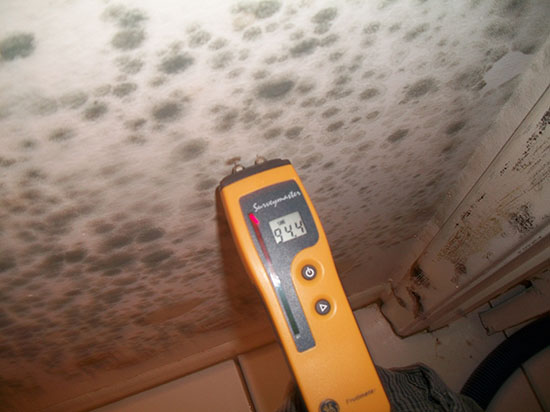Do I have mold in my home? While at my son’s baseball practice, on two recent occasions, I was asked about mold and how a homeowner can detect if they have mold in their home. These homeowners were concerned that their family was experiencing repeated issues with upper respiratory and bronchial infections, and symptoms similar to allergies. In both of these situations, neither homeowner has seen any signs of visible mold growth, nor have they experienced a water damage which could have contributed to a mold issue.
As we know, mold is ubiquitous, it’s everywhere especially in humid environments such as ours in South Florida. We can’t fully eliminate mold from our environment as mold grows outdoors on leaves, grass etc. and is blown around in the air. Small amounts of mold from the outdoors can enter the home through open doors, windows, vents, it can also become attached to clothing and be carried inside. The mold spores carried from outside into your home in this manner would be considered small amounts and should not significantly cause symptoms as we are exposed to mold blowing through the air outside. However, once mold grows inside, it has no place to go, and once the spore counts become elevated, it can travel through our HVAC system and cross contaminate other areas of the home.
Many areas in our home are prone to mold growth such as shower stalls, drywall, ceiling tiles, carpet, furniture, ductwork, paneling, wallpaper, cabinetry and anything that is porous. Once a porous building material gets wet from a leak and is not properly dried out within 24-48 hours, mold may begin to grow. If the leak continues providing mold with its much needed moisture to grow, then the problem can continue and start to produce mold spores in the air that you breathe.
Some molds produce toxic substances known as mycotoxins. These mold spores may cause allergens in the air especially for sensitive individuals like children, senior citizens and/or those who are immune compromised.
So what do you do? If you cannot see any signs of visible mold nor do you have a history or indication of a water damage in your home, then the only way to determine if the air quality is affected by mold is to have a state licensed mold assessor perform an air quality test. The results of the air quality test along with a visual inspection performed by a licensed mold remediator such as our company, will determine the best course of action and the scope of work that is needed to eliminate the issue.
It is important to identify the cause of the mold before you begin a mold remediation as you want to identify the exact source of the problem that caused the mold so it can be fully resolved.

